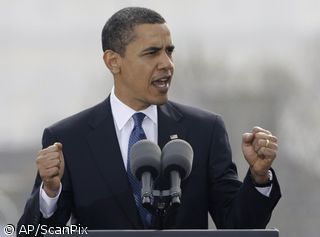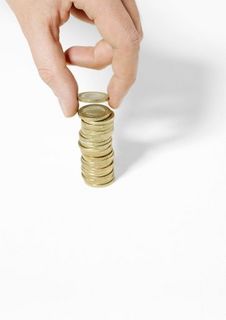Russia and its neighbors may boost crude oil shipments through an Israeli pipeline, helping them compete against Persian Gulf nations for sales in Asia
Published:
3 November 2003 y., Monday
The 254-kilometer Eilat-Ashkelon pipeline, which has flowed from the Red Sea to the Mediterranean for more than 30 years, will reverse direction for a second time in November. A tanker is set to leave the Red Sea port of Eilat, bound for Asia, with oil sent from Ashkelon on the Mediterranean.
Russia wants to sell more oil in Asia, where demand is growing faster than in Europe, as China and Japan seek to reduce their dependence on Middle East exports. The pipeline gives oil companies an alternative to the longer route around Africa and lets them avoid restrictions in Egypt's Suez Canal.
How much crude will be exported across Israel will depend on the so-called arbitrage window, when Russian oil prices are low enough to attract Asian buyers. The pipeline may make Russian crude oil, which costs about four times as much to produce as Middle Eastern grades, more competitive by reducing transport distances and costs.
Very large crude carriers, or VLCCs, which can carry about 2 million barrels of oil, take 10 days to travel from the Red Sea to Asia compared with 30 to 35 days from the Mediterranean.
A tanker is scheduled to unload about 2 million barrels of Russian Urals and Kazakh Tengiz crude at Ashkelon in the second half of November, shipbrokers said.
Šaltinis:
Bloomberg
Copying, publishing, announcing any information from the News.lt portal without written permission of News.lt editorial office is prohibited.
The most popular articles
 On August 4, the first chartered flight of "The Japan Airlines" will arrive from Tokyo in the Baltic States and land in Riga.
more »
On August 4, the first chartered flight of "The Japan Airlines" will arrive from Tokyo in the Baltic States and land in Riga.
more »
 1.6 billion rouble loan to overcome problems holding up expansion of city of Surgut
more »
1.6 billion rouble loan to overcome problems holding up expansion of city of Surgut
more »
 Nordic Shared Services & Outsourcing Forum 2009, 26 – 27 August, Sweden
more »
Nordic Shared Services & Outsourcing Forum 2009, 26 – 27 August, Sweden
more »
 Results of the latest price survey by Eurostat show that Lithuania is on the list of the TOP 10 least expensive countries in Europe.
more »
Results of the latest price survey by Eurostat show that Lithuania is on the list of the TOP 10 least expensive countries in Europe.
more »
 The European Commission's Digital Competitiveness report published today shows that Europe's digital sector has made strong progress since 2005.
more »
The European Commission's Digital Competitiveness report published today shows that Europe's digital sector has made strong progress since 2005.
more »
 US President Barack Obama said that the economy was weaker than he thought when he took office, but there are signs of improvement.
more »
US President Barack Obama said that the economy was weaker than he thought when he took office, but there are signs of improvement.
more »
 The EIB and UniCredit Group strengthen their cooperation to implement the Joint Action Plan of the largest multilateral lenders in Central and Eastern Europe who have committed to provide up to EUR 24.5 bn lending to the SME sector hit by the global economic crisis.
more »
The EIB and UniCredit Group strengthen their cooperation to implement the Joint Action Plan of the largest multilateral lenders in Central and Eastern Europe who have committed to provide up to EUR 24.5 bn lending to the SME sector hit by the global economic crisis.
more »
 Within the first half of 2009, AB Bank SNORAS earned LTL 24 million of unaudited profit.
more »
Within the first half of 2009, AB Bank SNORAS earned LTL 24 million of unaudited profit.
more »
 10,000 workers were helped by the European Globalisation Adjustment Fund (EGF) last year and of these, more than two-thirds found a new job, according to a report adopted by the European Commission today.
more »
10,000 workers were helped by the European Globalisation Adjustment Fund (EGF) last year and of these, more than two-thirds found a new job, according to a report adopted by the European Commission today.
more »
 SEB recently won awards for best consumer Internet banks in Lithuania and Latvia in a ranking presented by Global Finance Magazine.
more »
SEB recently won awards for best consumer Internet banks in Lithuania and Latvia in a ranking presented by Global Finance Magazine.
more »